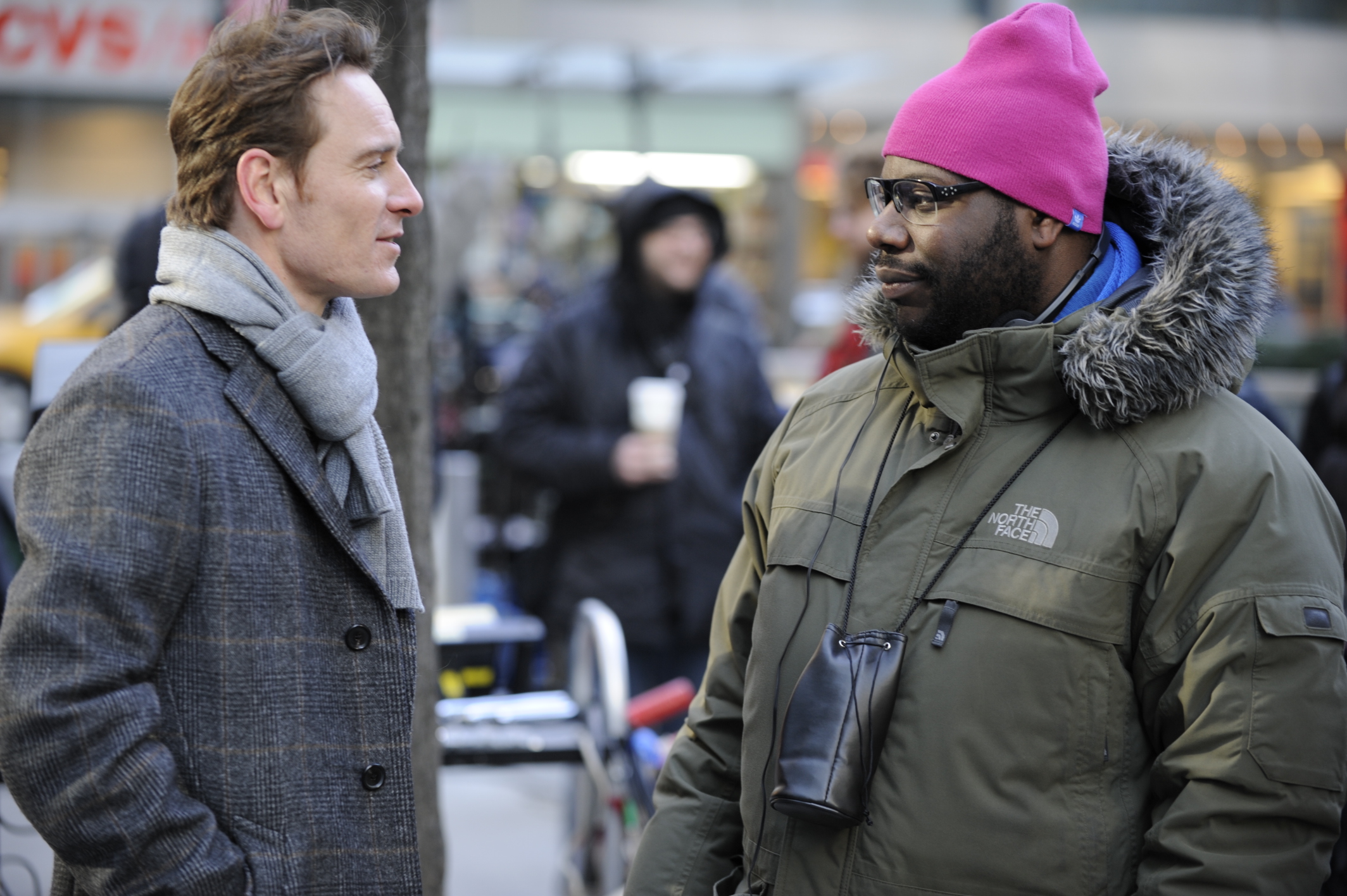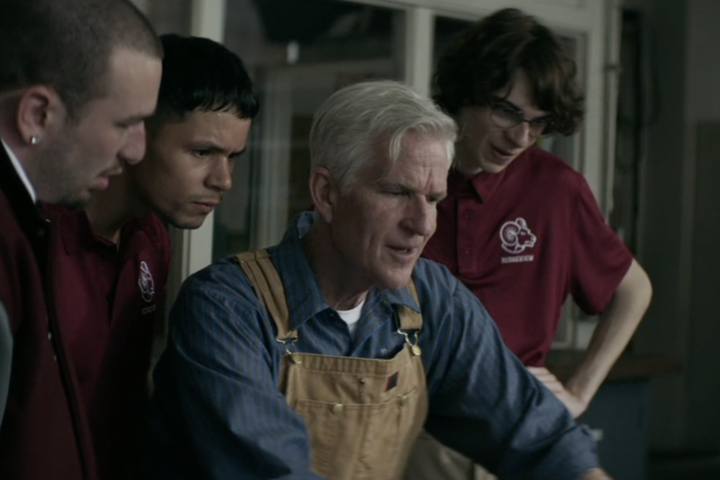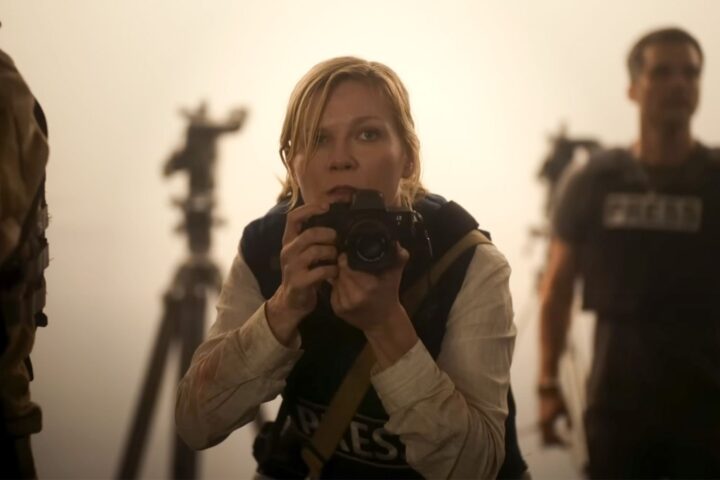Shame, one of the year’s best movies, is a downward spiral into a sad world of sexual encounters for an addict whose limits are about to be tested. He’s played by Michael Fassbender in an extraordinarily exposed performance where the actor goes to hell onscreen, if not quite back. Also in this nightmare is Carey Mulligan as the man’s emotionally damaged sister, herself stuck in self-destruction. Together they form a tragic pair of good-looking New Yorkers who underneath are in very private and personal prisons.
As directed by British artist turned filmmaker Steve McQueen, who paired with Fassbender for 2009’s equally wrenching Hunger, Shame is a roundelay of detachment, dependency and devastation. We watch two likable people play out routines they cannot change. In the process, Shame, rated NC-17 for its frank sexual content and themes, pushes the limits of film not for its couplings but rather it’s depiction of the extremities of a secret addition that turns a man’s life upside down. Like the film, Fassbender, in the year’s best performance, is unforgettable.
I caught up with actor Fassbender and filmmaker McQueen recently to discuss their latest daring collaboration, as well as notions of intimacy and connection in the modern world.
Culture today is so sexualized in media, print, films and music. At the same time, how we communicate now is also so impersonal. There is a real lack of intimacy. The film depicts a character so detached from meaningful connections and intimacy.
Michael Fassbender: Basically sex and our relationship to it—we’re trying to investigate it in the here and now and perhaps an element that may be happening. It seems that it is an area that we have not cracked. Nothing has really changed in the hundreds of years that people have been trying to figure out. And why do we have sex? Primarily, to survive, so we don’t become extinct. And then there are people who have realized that a lot of money can be made from it. So sex is used to sell products. In terms of information, I think it’s not really about sexual addition. It’s about how we are trying to navigate through the world with all of this information being streamed at us all the time. How do you process and deal with that? Perhaps that confusion or anxiety manifests itself as an addiction in ways to numb or escape from all of this. We have to deal with a lot already in a city. So many people already living on top of each other and how do we behave with each other? Society tells us there is a certain etiquette in how we should behave. And then what happens when you peel that top layers way? How does it work?
Yet with Brandon, the issue of being close to another human being doesn’t work. He obviously has a lot of sex but it’s cold. That seems to happen more and more in the world today that people are less apt to be close with each other. I don’t know what that means really.
MF: I don’t know either. I think the thing with Brandon is, like people say, there is emptiness in him. Yes, but he is brimming over the top with emotion and sensitivity, but he is keeping it under lock and key, guarded, because he is afraid of the results of what will happen if he emotionally exposes himself in that scenario. We see that very closely in the relationship with Marianne. He wants it. He wants the relationship that is nourishing—of course he does. We all want the same things: to be accepted, love, relevant. You get revelations of the characters through each other. Sissy and Brandon are revelations of each other. She is exploding with emotion and throws love at anyone and tries to extract it from them. She emotionally unloads on everybody she comes into contact with, from what we can tell.
There are no judgments in the film whatsoever.
MF: No, because we are the people in it. It’s not, “Hey, look at these guys,” because if you disconnect it from yourself and make it somebody else’s problem, you will never be able to do an honest portrayal. But if you think it is our problem, you don’t demonize it.
Steve McQueen: You cannot demonize him because he is one of us. Therefore, you see through his actions that he is trying to be a decent human being, but sometimes it is bloody hard. We are not computers; we are actually human beings. If we were computers we would not be interesting to make films about. The fact that we are humans and not particularly perfect makes it interesting. We don’t really communicate with each other. We just make noise. The truth is barely spoken about. We just get through the day. It’s difficult to be a human being. We know these characters. We all know a Sissy; a person who wants your love. And of course we all know the kind of character like Brandon. We might actually all be him. It’s not a million miles away. So there is a familiarity. You don’t have to be a sex addict to understand Brandon. I think you sympathize with him. Being a sex addict now is like having HIV in the early 80s; people go underground and do not talk about it. I think that’s outrageous. It is a situation where people should be able to keep their heads above water and have a conversation about it without being shamed. That was one of the reasons I made the movie.
MF: It doesn’t exclude us as the players in the film or the audience. The audience has to really participate in order to provoke a response properly. The audience can fill it in way better than we can explain it.
Steve, you recently mentioned that it’s important to “keep cinema alive.” Shame ranks with Last Tango in Paris, Bad Timing, Carnal Knowledge and others as a serious adult movie, an anomaly today. What do you think about the movie landscape?
SM: With the Internet and pornography only two clicks away, thinking about cinema and the movies you mention, some from the early 70s, we have moved on in the world. What place does cinema have right now? What I mean is that cinema has space now where it can be a much more adventurous place to talk about narrative because with television, a ten-part series can be very elaborate. Cinema can actually have a space to be cinema, which is a way to communicate something very direct to the audience. It can be a necessity. You only have an hour and a half or an hour and forty minutes to say what you want to say. It’s like a 7.5 inch single in the old days. You put it on and it’s got to rock. It’s got to do something.
Michael, you really go to rock bottom as an actor here. Where do you dig to find the kind of darkness here?
MF: I don’t really know. I think more than drawing from something, I needed to facilitate. When I go home, I say that it is not really supposed to be therapeutic for me because then it becomes self-indulgent. I tried not to distance Brandon from me so I could invest in him, in the right way, rather than take from him. Does that make sense? Where is he at this point in time? What am I trying to reveal to the audience? What are we trying to show? It’s more about that. You have to be awake and focused every day, and provocative about stimulating those around you, and serve the story. It’s that simple.
SM: The physicality and focus he brings to the part is really about representing us outside of movie reality, in a real reality. I think people can see themselves in that.
The last shot is highly provocative and poses quite a question.
MF: It’s a beginning for me. There is hope. Whether or not he stays on the train or gets off with her. The train keeps going. Life keeps going. Everything cannot be nicely wrapped up. It is a day-to-day think that he is dealing with and that scene shows that struggle.
Like the neuroses of the characters, the title is something that is under the radar screen for both.
SM: It came from talking to a lot of people who have this and discussed these long, interactive sexual journeys they used to have. When they come out, there is a sense of self-loathing, embarrassment and shame. That kept coming up in circles.
MF: They would repeat. And then it doubles.
SM: Yes, they would come up for air and then go back under again. They just wanted to get lost. Shame was this acknowledgement of what they were doing.



